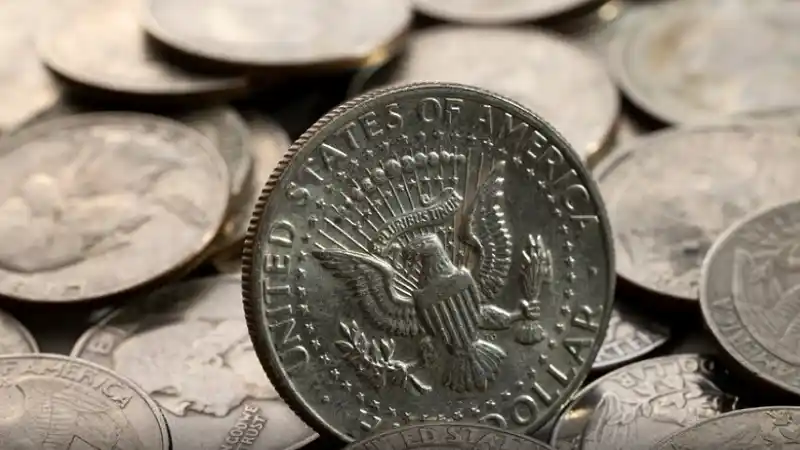In recent years, the cryptocurrency industry has been plagued by numerous scams and controversies. One name that frequently resurfaces in discussions about questionable crypto schemes is OneCoin. This global network marketing platform, which promised its users sky-high returns on investment, was eventually revealed to be a massive Ponzi scheme. Alongside this, Scott Wright, the self-proclaimed creator of Bitcoin, and his relationship with outlets like CoinTelegraph have added another layer of intrigue and controversy.
This article aims to provide a detailed overview of OneCoin, its collapse, and its connection to Scott Wright and CoinTelegraph. Along the way, we’ll also discuss practical steps for protecting yourself in the cryptocurrency space, ensuring that you stay informed and avoid falling victim to similar scams.
What Was OneCoin?
OneCoin was a cryptocurrency launched in 2014 by Ruja Ignatova, a Bulgarian businesswoman who promised enormous returns to investors. Unlike traditional cryptocurrencies like Bitcoin or Ethereum, OneCoin did not have a public blockchain, making it almost impossible to verify the legitimacy of its operations. Despite these red flags, OneCoin gained millions of members globally, largely due to its aggressive multi-level marketing tactics.
OneCoin’s success was fueled by its enticing promises: users could purchase educational packages that offered the chance to mine OneCoin and sell it for profit. These “mining” activities were not genuine, and the cryptocurrency itself had no actual value. Instead, it operated like a Ponzi scheme, using funds from new investors to pay out returns to earlier investors.
How Did OneCoin Collapse?
By 2017, signs of trouble began to emerge. The company faced regulatory scrutiny in several countries, including the U.S. and the EU. The founder, Ruja Ignatova, disappeared in 2017, and her whereabouts remain unknown. As investigations grew, it became clear that OneCoin was a fraudulent operation, with billions of dollars taken from investors, many of whom were left with worthless tokens.
Authorities worldwide began cracking down on OneCoin’s operations. In 2019, OneCoin’s co-founder, Konstantin Ignatov (Ruja’s brother), was arrested in the U.S. and later pleaded guilty to wire fraud and money laundering charges. The case continues to unravel, with multiple individuals facing charges related to the scam.
The Scott Wright CoinTelegraph Connection
Scott Wright, an Australian businessman, has become a controversial figure in the cryptocurrency community. Known for his claims of being Satoshi Nakamoto, the elusive creator of Bitcoin, Wright has been involved in several high-profile legal battles related to Bitcoin’s creation. His connection to CoinTelegraph, a popular cryptocurrency news outlet, adds to the intrigue.
CoinTelegraph has published numerous articles about Wright’s claims over the years, often with mixed reactions from the cryptocurrency community. While some view Wright as a credible figure with valuable insights into the crypto world, others see him as a fraud or opportunist capitalizing on Bitcoin’s success. Despite the controversies surrounding his identity, Scott Wright’s association with certain individuals involved in the OneCoin debacle raises additional questions.
While there isn’t a direct connection between OneCoin and Wright, it’s important to understand the broader context of Wright’s involvement in the cryptocurrency space. His consistent presence in high-profile discussions about blockchain technology, along with his legal battles, places him under the spotlight. CoinTelegraph, as a reputable news source, has been instrumental in covering Wright’s journey, often providing updates on the ongoing legal challenges he faces regarding his claims.
What Does This Mean for Investors?
Given the significant media coverage surrounding Scott Wright and OneCoin, it’s critical to approach all cryptocurrency ventures with caution. Even though CoinTelegraph provides valuable information, it’s essential to critically evaluate the legitimacy of any cryptocurrency investment, especially when the individuals involved have questionable histories.
Investors should ensure that they only invest in projects with verifiable blockchain technology and transparent governance structures. Promises of quick returns or secretive “new technologies” should be viewed skeptically, as these are common tactics used by scams like OneCoin.
How to Protect Yourself in the Crypto Space
1. Do Your Research
One of the most practical steps you can take to avoid falling for scams is thorough research. Always start by checking the project’s website and whitepaper, reviewing its blockchain technology, and looking for any red flags. Trustworthy cryptocurrencies, like Bitcoin and Ethereum, have transparent networks and a well-documented history.
Additionally, research the team behind the cryptocurrency. Legitimate projects often have publicly available team members with verifiable track records. If the team is anonymous or has a shady history, proceed with caution.
2. Watch for Red Flags
Common signs of a cryptocurrency scam include:
- Promises of guaranteed returns or high profits with little risk.
- Lack of transparency or a hidden team behind the project.
- Aggressive marketing tactics, such as pressure to invest quickly or recruitment-based systems.
- The absence of a whitepaper or technical documentation explaining how the cryptocurrency works.
If you encounter any of these red flags, it’s often best to steer clear and report the project to relevant authorities.
3. Use Trusted Exchanges and Wallets
Another key precaution is to ensure that you only use reputable exchanges and wallets. While platforms like Binance, Coinbase, and Kraken are widely used, always double-check the platform’s reputation before proceeding with any transaction.
Additionally, opt for hardware wallets like Ledger or Trezor to store your cryptocurrencies securely. These devices offer offline storage, reducing the risk of hacking or theft from online exchanges.
4. Avoid “Too Good to Be True” Opportunities
If an investment seems too good to be true, it often is. Cryptocurrency scams typically lure investors with promises of huge profits or “secret” technologies. Before you invest in any project, evaluate its fundamentals. What problem is the cryptocurrency solving? Does it have real-world use cases? If the project seems to lack a clear purpose or utility, proceed with caution.
5. Stay Updated on Regulatory News
Cryptocurrency regulation is evolving, with governments and regulatory bodies worldwide working to establish clearer guidelines. Staying informed about the latest regulatory developments can help you avoid investing in projects that could face legal challenges. Websites like CoinTelegraph, for example, offer regular updates on regulatory changes and developments in the cryptocurrency space.
Conclusion
The story of OneCoin and its connections to figures like Scott Wright underscores the importance of due diligence in the cryptocurrency market. While the allure of high profits is tempting, it’s essential to recognize the risks associated with investing in cryptocurrencies. Always research thoroughly, avoid high-risk or unverified projects, and stay informed about the latest industry news.
By taking practical steps to protect yourself and staying vigilant, you can navigate the cryptocurrency space more safely and make informed investment decisions. Keep your eyes open for red flags, and remember that even well-known names or news outlets may not always provide a clear indication of legitimacy.
As the cryptocurrency industry continues to mature, it’s crucial to adhere to Google’s E-A-T (Expertise, Authoritativeness, Trustworthiness) guidelines and ensure that the information you follow and act upon comes from trusted sources. Whether you’re an experienced investor or just starting, maintaining a skeptical mindset and practicing caution is the best way to safeguard your investments.





